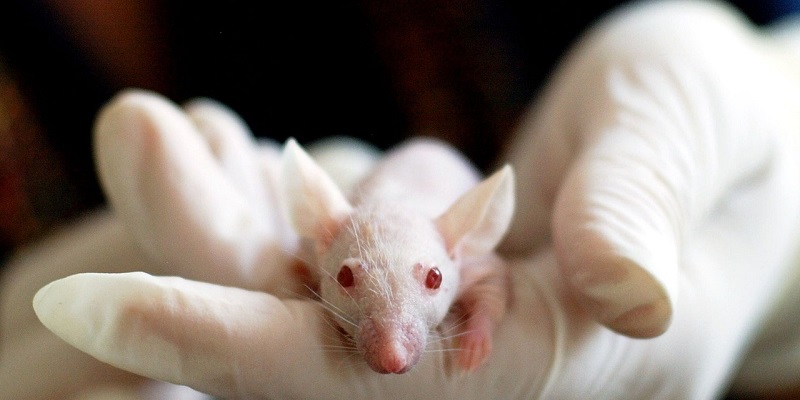Animal testing has been the go-to method for scientific research for many years, but over time there has been an increasing push towards science without animal testing. This change has been largely driven by the desire to conduct science without causing pain, suffering, distress, or lasting harm to sentient animals. In recent years, there has been growing recognition of the limitations of animal models, along with new technological advances that offer potential for replacing animal use in specific tests, research stages, or areas.
A recent survey shows that 77% of EU citizens want to see clear plans for a transition to conducting science “without the use of animals”. This figure is an indication of the growing support for alternatives to animal testing. It is no longer seen as a far-fetched idea, but rather as a necessary step towards progress.
The Desirability of Conducting Science Without Causing Pain and Suffering
At the heart of the push towards science without animal testing is the desire to conduct research without causing pain and suffering to animals. It’s an ethical concern that’s shared by many citizens, policymakers, and scientists alike.
The use of animals in scientific experiments can cause significant suffering, and many believe that this is not a necessary trade-off for progress. There have been significant strides in scientific research that do not involve animal testing, and the desire to expand these alternative approaches is gaining momentum.
Increasing recognition of the limitations of animal models
There is a growing recognition among companies and regulators of the limitations of preclinical models, including animal models. The need for more predictive approaches has become apparent, and the limitations of animal models are being increasingly scrutinized.
Many are beginning to see animal testing as an outdated methodology. Advancements in technology have also made it easier to conduct certain tests and experiments without the need to use animals.
New technological advances offer potential for replacing animal use
New technological advances offer increasing potential for replacing current animal use in specific tests, research stages, or areas. It is becoming clear that there are many alternatives that can potentially replace animal testing without sacrificing scientific integrity or accuracy.
Some examples of these new technologies include artificial intelligence and in vitro cell-based research platforms. Through these developments, science is becoming increasingly innovative and free from animal testing.
Growing Global Market for Non-Animal Alternative Testing
The global market for non-animal alternative testing, which is growing annually, is expected to be worth an estimated $2.6 billion by 2026. The market for alternatives to animal testing is quickly growing, indicating a clear shift towards non-animal testing methodologies.
This growth is being driven by scientific research that values ethics and progress equally. Many companies and organizations have already pledged their commitment to this shift towards non-animal testing, recognizing that it is a necessary step on the path to a better future.
The European Commission shares the conviction to phase out animal testing
The European Commission has emphatically stated that it shares the conviction “that animal testing should be phased out in Europe.” This statement is proof that the sentiment for science without animal testing is gaining momentum on a large-scale level.
The European Commission’s leadership on this issue is a promising sign of things to come. They have taken a proactive approach to moving towards a world without animal testing, which will inspire other organizations and policymakers to do the same.
Organizations Working Towards Replacing Animal Use in Science
More organizations are signing up to work towards entirely replacing the use of animals in science. These organizations are the pioneers of what is sure to become an ethical and innovative new era of scientific research.
Many non-profits, governmental organizations, and private companies are already making significant strides in developing alternative research methods. They are doing so with a deep understanding of not only the limitations of traditional animal studies but also the promise of new innovative practices.
“Science Without Animals” is about maximizing opportunities for progress
This is not about “banning” or stopping important research; it is about maximizing our opportunities to pioneer and adopt advanced methods and approaches that will help solve the major health and environmental challenges of the 21st century.
Great new developments can be accomplished without necessarily requiring the use of animals in scientific testing. Science without animal testing paves the way for progress in new and unexpected ways.
Leadership and commitment are necessary for success
Such ambitions must be matched by leadership and commitment to achieving them, with clear plans, the right investment, and targeted support for both people and infrastructure.
We must match our ambitions with our actions. We must invest in new technologies that enable humane research and development of alternative methods. We must support research on non-animal alternative methods and ensure that these new research techniques have access to all the necessary resources for success.
Transitioning away from using animals in science and phasing in alternative approaches will require greater commitment and coordinated action from politicians; companies that produce new medicines or chemicals; the bodies that regulate them; organizations that fund science; and individual scientists.
In conclusion, science without animal testing is not a pipe dream; it is becoming a reality. There is a growing recognition of the limitations of animal models, along with new technological advances that offer the potential for replacing animal use entirely.
We must commit to this change and take action. We must recognize the moral, ethical, and scientific imperatives for change, as they represent a significant opportunity to take a critical look at traditional methods of research and development. Through our efforts to phase out animal testing, we can reach new heights in ethical and innovative scientific research.

